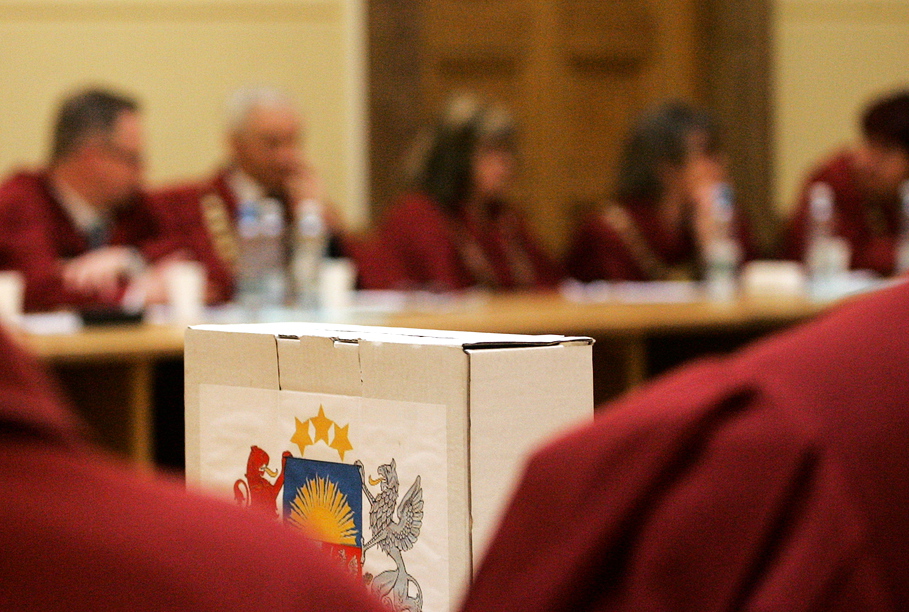In its petition Harmony asked the Court to review and overturn in full or in part the election results for the Latgale constituency. It requested a court order upon the Central Election Committee (CVK) to nullify all ballots cast for Unity, wherein candidate Dzintars Zaķis received a ‘plus’ or was left unmarked while all other candidates were stricken from the list.
According to the Election Law, the Supreme Court had seven days to review the evidence presented by the submitting party and take its decision, its press secretary Baiba Kataja explained to national information agency LETA. In light of these provisions, the court assessed the evidence, heard witnesses and reviewed the materials presented to it by the Security Police (DP).
The court did not find the evidence to be sufficient for establishing violations of the Election Law that significantly influenced the outcome in any given precinct or in the Latgale constituency as a whole. While there was proof that individual illegal activities had taken place at certain precincts, it did not add up to a convincing conclusion that the final election results were notably affected.
The court however did not receive sufficient clarification for the extraordinary success of Unity’s regional candidate and 11th Saeima faction leader Zakis, based on pre-election polls and previous election results.
Also, the court’s rejection of Harmony’s petition does not mean that further damning proof may not still be provided following further criminal investigations conducted by the DP. The Saeima Elections Law provides for the CVK to rule on redistributing mandates among candidates on a single list, as well as possibly redistributing parliamentary mandates between political parties should the DP uncover such violations.
The decision is not subject to further appeal.





























